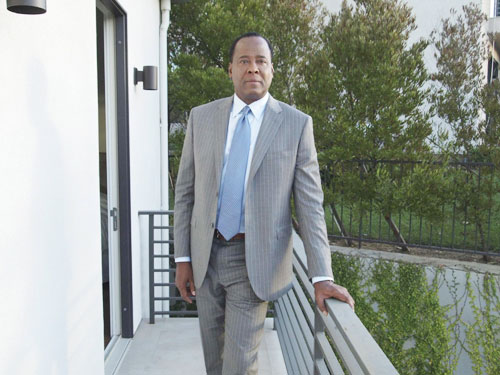Judge denies Jackson doc's bid for new testing
 0 Comment(s)
0 Comment(s) Print
Print E-mail
China Daily, November 22, 2011
E-mail
China Daily, November 22, 2011
|
|
|
Dr. Conrad Murray is shown in this undated publicity photograph released to Reuters November 8, 2011. [Photo/Agencies] |
Just days before the scheduled sentencing of the doctor convicted of causing Michael Jackson's death, a judge denied a request Monday to have an independent laboratory test the contents of a key vial of evidence.
Superior Court Judge Michael Pastor said defense attorneys for Dr. Conrad Murray could have sought the testing months ago or even during the doctor's six-week trial but chose not to.
Murray's attorneys wanted a lab to test a small amount of liquid found in a vial of the anesthetic propofol that authorities contend was used to help Jackson sleep on the day he died. Murray had been giving Jackson nightly doses of propofol to help the singer sleep as he prepared for a series of comeback concerts.
Defense lawyer J. Michael Flanagan argued the results would reveal the accuracy of a theory by a prosecution expert who testified that Murray left Jackson's bedside while the singer was on an IV drip of propofol and the painkiller lidocaine.
Deputy District Attorney David Walgren contended there was no legal basis for the testing and said Murray received a fair trial.
Pastor examined the propofol vial, which was found in the closet of Jackson's bedroom, before issuing his ruling.
Flanagan said it didn't occur to him that the contents of the vial should be tested until after the conclusion of Murray's trial, which ended Nov. 7 with the conviction of the cardiologist on an involuntary manslaughter charge.
Flanagan said if prosecution expert Dr. Steven Shafer's theory is correct, the small amount of liquid that remained in the vial should contain lidocaine. In that case, "that's the ballgame" and would prove Murray did leave the singer alone on an IV drip, Flanagan said.
Flanagan also argued that Shafer didn't tell jurors that he believed Murray injected lidocaine into the propofol vial until Shafer was called as a rebuttal witness in the final moments of testimony.
Walgren said Shafer and other witnesses acknowledged that they didn't know exactly what happened in Jackson's bedroom before the singer's death on June 25, 2009. Shafer was one of several experts who told jurors that he could only theorize on events based on toxicology results, Murray's statements to police and evidence found at the scene.
"Whether there was lidocaine in that bottle or not is completely irrelevant," Walgren said.
Murray is set to be sentenced on Nov. 29.
Murray remains jailed and faces a possible sentence ranging from probation to up to four years.






